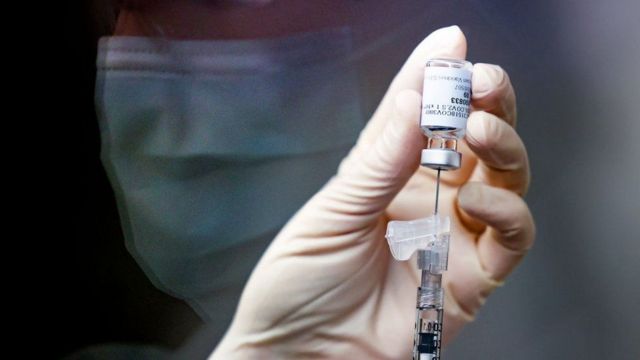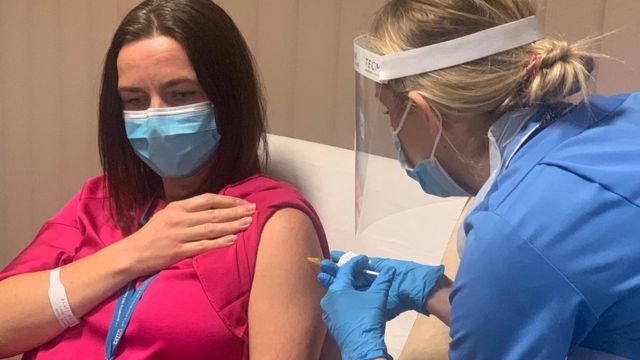Single dose vaccine: how the US-approved Johnson & Johnson immunizer can change the global vaccination landscape
Most vaccines need to be administered in a double dose
US regulators formally approved on Sunday (2/28) Johnson & Johnson's single injection vaccine against coronavirus, the third to be authorized in the country.
This vaccine will potentially have an even greater reach in the global fight against coronavirus because it works with a single dose. Over 800 million doses have been ordered worldwide.
The vaccine was created to be an economical alternative to the Pfizer and Moderna vaccines and can be stored in a refrigerator instead of a freezer.
The tests found that it prevented serious illnesses, but was 66% effective overall when moderate cases were included.
The United Kingdom, the European Union and Canada also ordered the immunizer, and 500 million doses were also ordered through the Covax scheme to supply the poorest nations.
Brazil has no agreements to purchase the Johnson & Johnson vaccine.
President Joe Biden welcomed the approval as "exciting news for all Americans and encouraging development", but warned that "the fight is far from over".
"While we celebrate today's news, I urge all Americans - continue to wash your hands, remain socially distant and continue to wear masks," he said in a statement.
The doctor. Claire Cole, from the UK public health system, volunteered in the Phase 3 trial of the vaccine from Janssen, a Johnson & Johnson company
"As I have said many times, things are yet to get worse again as new variants spread and the current improvement can be reversed."
The authorization from the U.S. Food and Drug Administration (FDA) came after an external committee of experts unanimously supported the vaccine on Friday.
The results of tests conducted in the USA, South Africa and Brazil have shown that it is more than 85% effective in preventing serious diseases and 66% effective in general when moderate cases have been included.
Notably, there were no deaths among the participants who received the vaccine and no hospitalization after 28 days after the vaccine.
General protection was less in South Africa and Brazil, where variants of the virus became dominant, but the defense against serious or critical illnesses was "similarly high".
The following were ordered:
- European Union - 200 million doses
- USA - 100 million doses
- Canada - 38 million doses
- United Kingdom - 30 million doses
- Nations Covax - 500 million doses
In Brazil, the National Vaccination Operationalization Plan against Covid-19, prepared in December by the federal government, cited the expectation of obtaining 38 million doses of this vaccine from the second quarter, but for the time being this is stipulated only by a memorandum of understanding - no purchase was actually made.
Single dose
The fact that it works in a single dose and can be stored in a common refrigerator, while others need super-cold storage, means that the company's vaccine can play a significant role worldwide.
"A single dose vaccine is considered by the World Health Organization (WHO) to be the best option in pandemic settings," said Paul Stoffels, scientific director at Johnson & Johnson.
He added that the vaccine could "potentially protect hundreds of millions of people from the serious and fatal results of covid-19".
The company's goal is to manufacture 1 billion doses this year.
Production
The Johnson & Johnson vaccine uses a common cold virus that was developed to be harmless.
It then carries part of the coronavirus genetic code to the body, but in a safe way. This is sufficient for the body to recognize the threat and then learn to fight the coronavirus.
The mechanism trains the body's immune system to fight the coronavirus when it encounters the real virus.
The process is similar to the approach used in the vaccine developed by the University of Oxford and the company AstraZeneca.
"A single dose regimen with rapid onset of protection and ease of delivery and storage offers a potential solution to reach as many people as possible. The ability to prevent hospitalizations and deaths would change the game in combating the pandemic," said Mathai Mammen, Belgian company Janssen.
The results are based on almost 44,000 people who participated in the tests, including in Brazil.



No comments:
Post a Comment